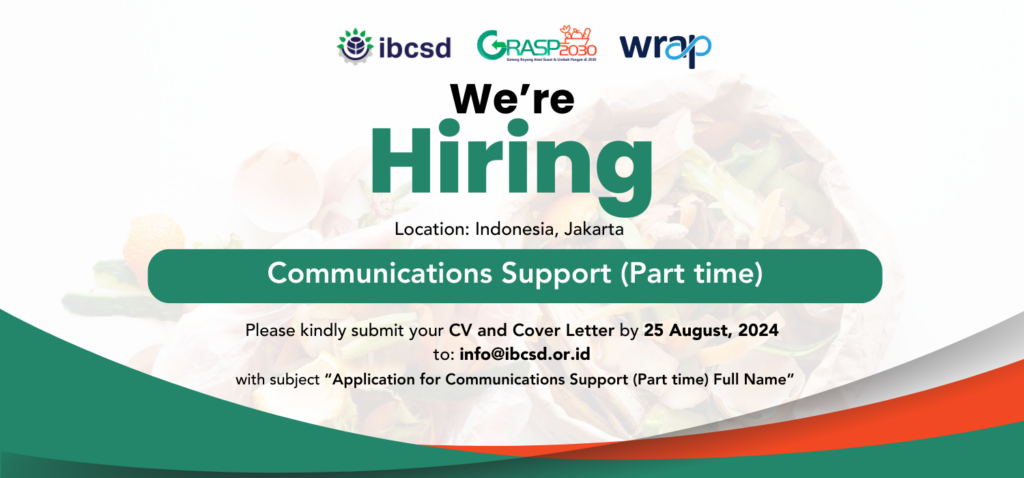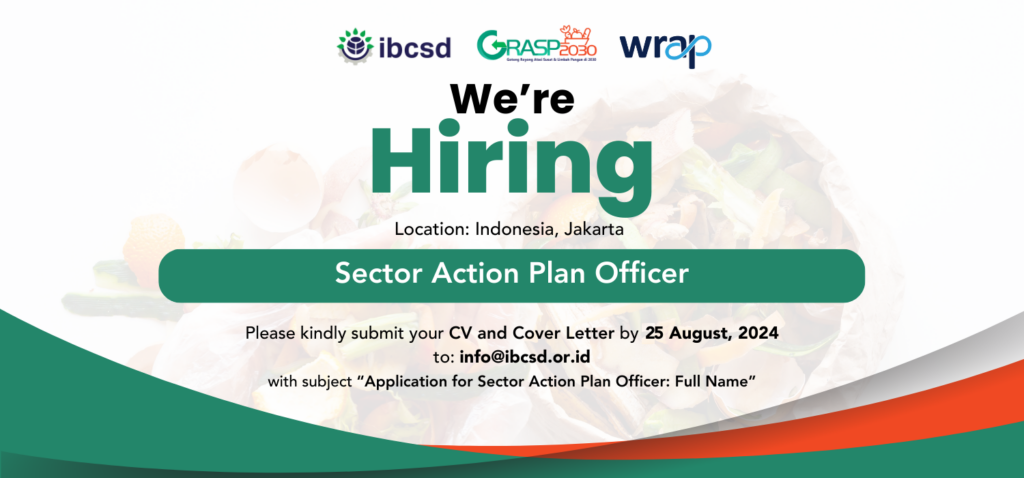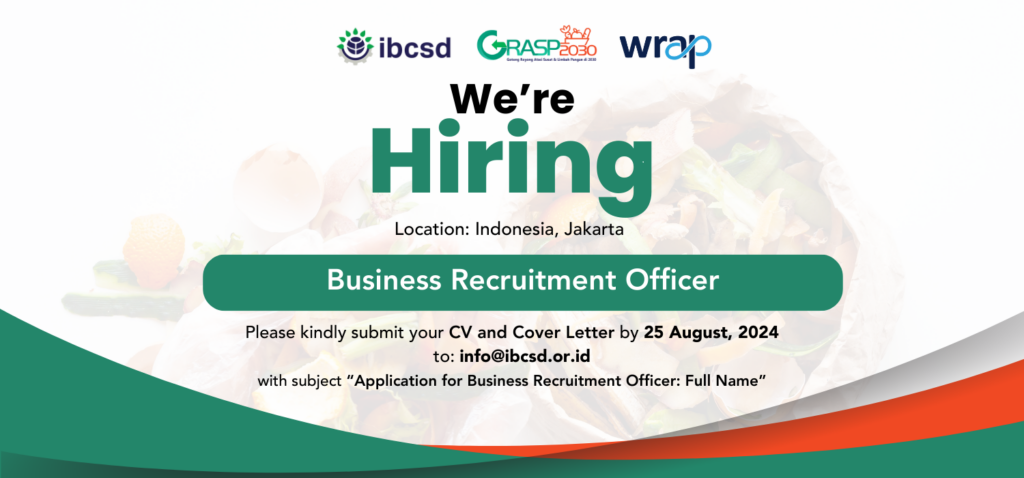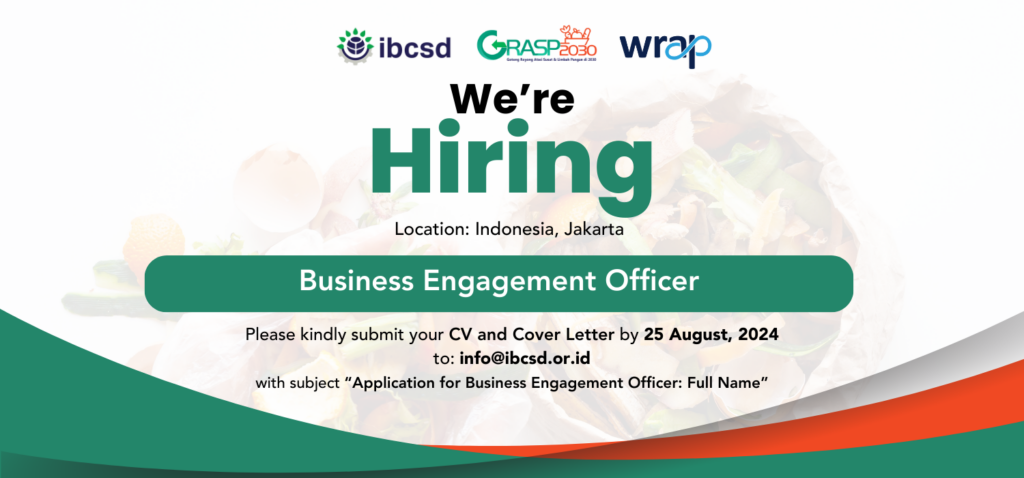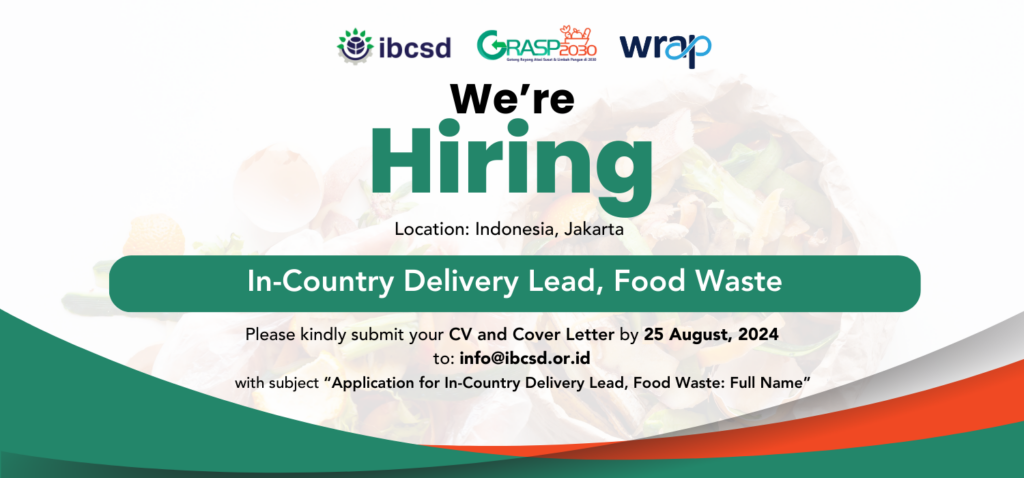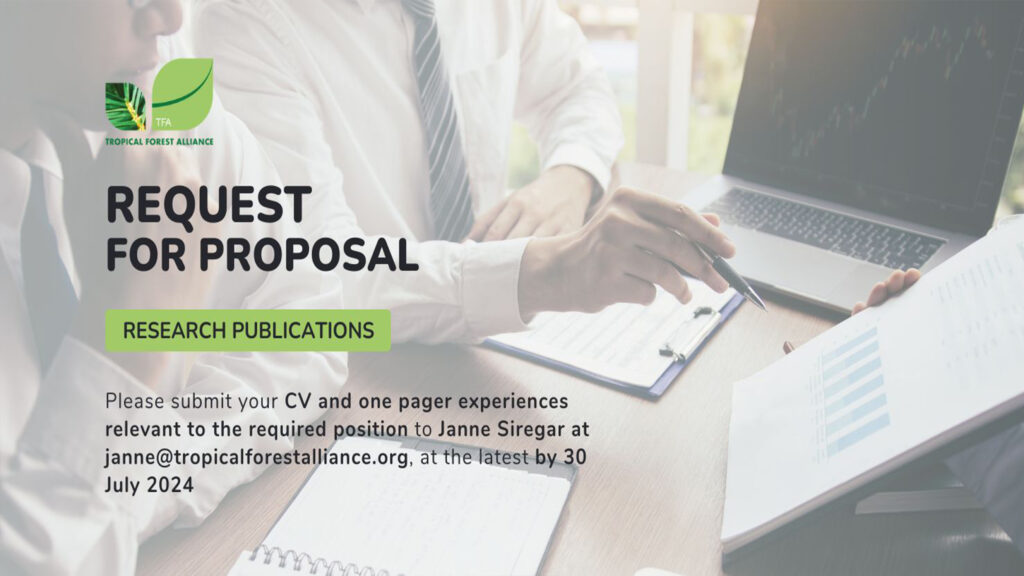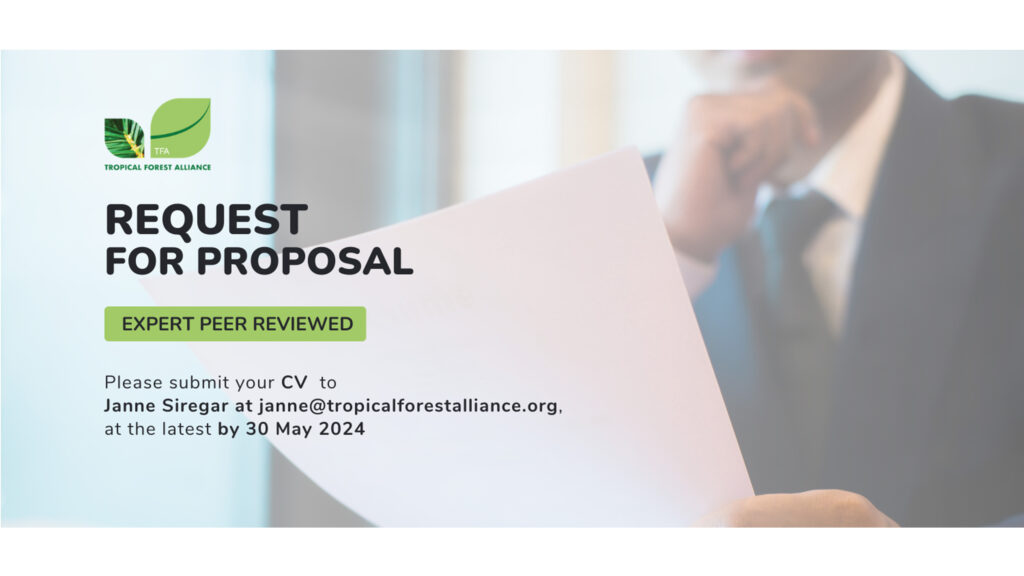Job Purpose
To lead WRAP’s food system transformation work in Indonesia by working closely with the Indonesian Business Council for Sustainable Development, colleagues in WRAP and WRAP Asia Pacific and other critical stakeholders both in Indonesia and more broadly to implement ambitious impact programs, in pursuit of WRAP’s impact goals. Where appropriate, this role will also represent WRAP in-country on other food system transformation topics, including climate action and water sustainability, and broader strategic areas of work
Key Responsibilities & Accountabilities
- Champion and drive WRAP’s vision and ambition to reduce food waste through the Voluntary Agreement in Indonesia.
- Work with colleagues and partners across WRAP‘s international network to implement an ambitious impact-focused program to tackle food waste in Indonesia.
- Be part of a team of multi-national experts to develop and deliver holistic strategies for impact, including with business, government, citizen and policy action focus.
- Build strong relationships with WRAP’s in-country partner and other key stakeholders, to implement a programme of interventions designed to reduce food waste.
- Build and nurture a network of relationships and collaborations to enable WRAP to design and attract funding for a continuing deepening and broadening of our ongoing programme of interventions in the country and surrounding region.
- Bring a level of energy matching WRAP’s vision and ambition throughout the programme.
- Act as the key link between WRAP’s in-country partners, the Food System Transformation team, and the UK-based project management team.
- Facilitate Project Management communications between WRAP Global and the in-country partner, including quarterly retrospective reviews, and planning, prioritization and budgeting workshops setting the objectives for the next quarter.
Knowledge, Skills, Training and Experience
Essential
- Good understanding of the drivers of food loss and waste.
- Experience of working with the food and drinks industry / Fast-Moving Consumer Goods sector and an understanding of the local food culture.
- Self-starter able to work independently to deliver a strategic brief and to generate and develop opportunities.
- Practical experience of delivering evidence-based intervention and transformation projects.
- Strong relationship management experience, and excellent communication skills, with the ability to bring together a wide range of stakeholders to drive change, secure commitment and aid collaborative working.
- Fluency in English as well as relevant local language(s)
Desirable
- Knowledge of public-private collaborations / voluntary agreements
- Experience of working with governments, philanthropic trusts & foundations and other funders
- Understanding of wider sustainability topics around food systems (such as climate change and water) and materials (such as plastics and textiles).
- Experience of developing funding proposals
Job Specific Information
The role will act as WRAP’s champion within the country and drive WRAP’s vision and ambition to transform the country’s food supply chain (via partners), citizen behaviours around food waste (via campaigns and other interventions) and government policy.
The role will:
- Champion and communicate WRAP’s vision and ambition for the programme with the local VA delivery partner and other stakeholders.
- Work with WRAP programme leads to ensure that the in-country VA goals and objectives are deliverable in line with this vision and ambition.
- Nurture a strong relationships with WRAP’s in-country partner and grow a wider network of partners and stakeholders throughout the region.
- Build a pipeline of new opportunities for collaboration, interventions, and funding.
NOTE: This job description is not intended to be exhaustive. It is expected that the post holder and WRAP will adopt a flexible attitude and accept that the duties may have to be varied according to circumstances, in particular changing corporate requirements and individual development needs.
Please kindly submit your CV and Cover Letter by 25 August, 2024 to: [email protected]
Subject: “Application for In-Country Delivery Lead, Food Waste: Full Name”
